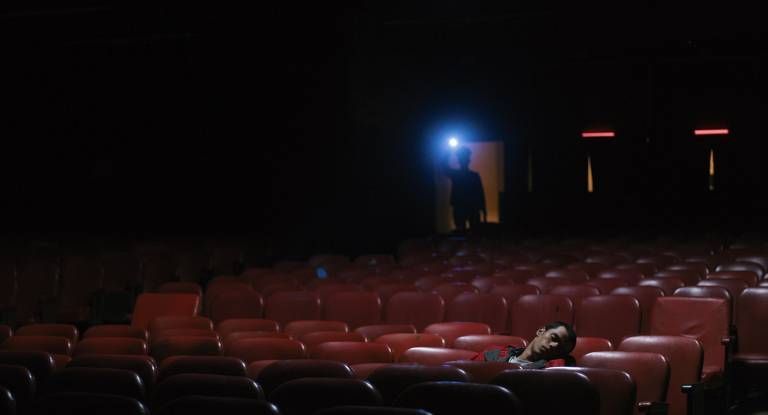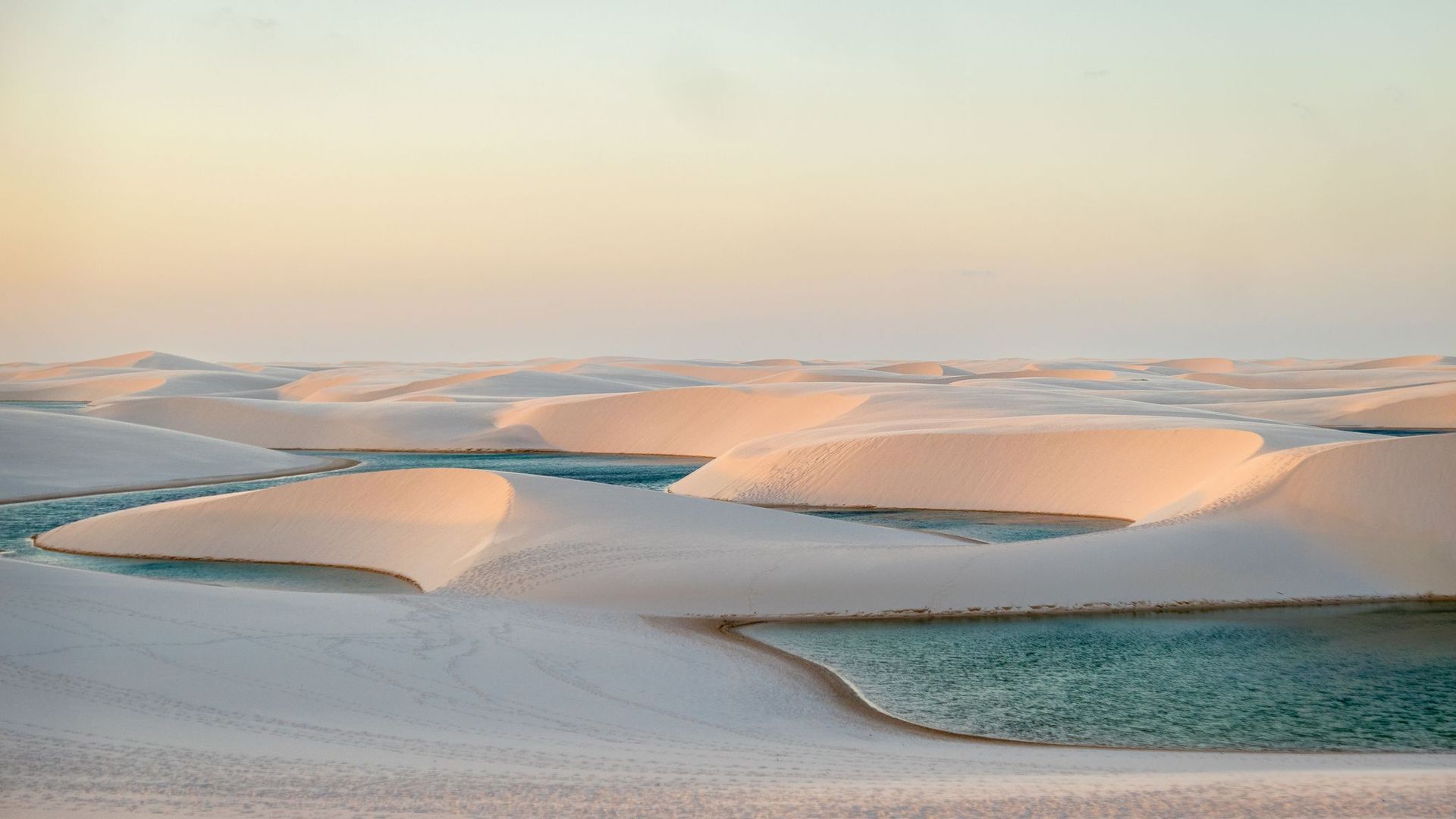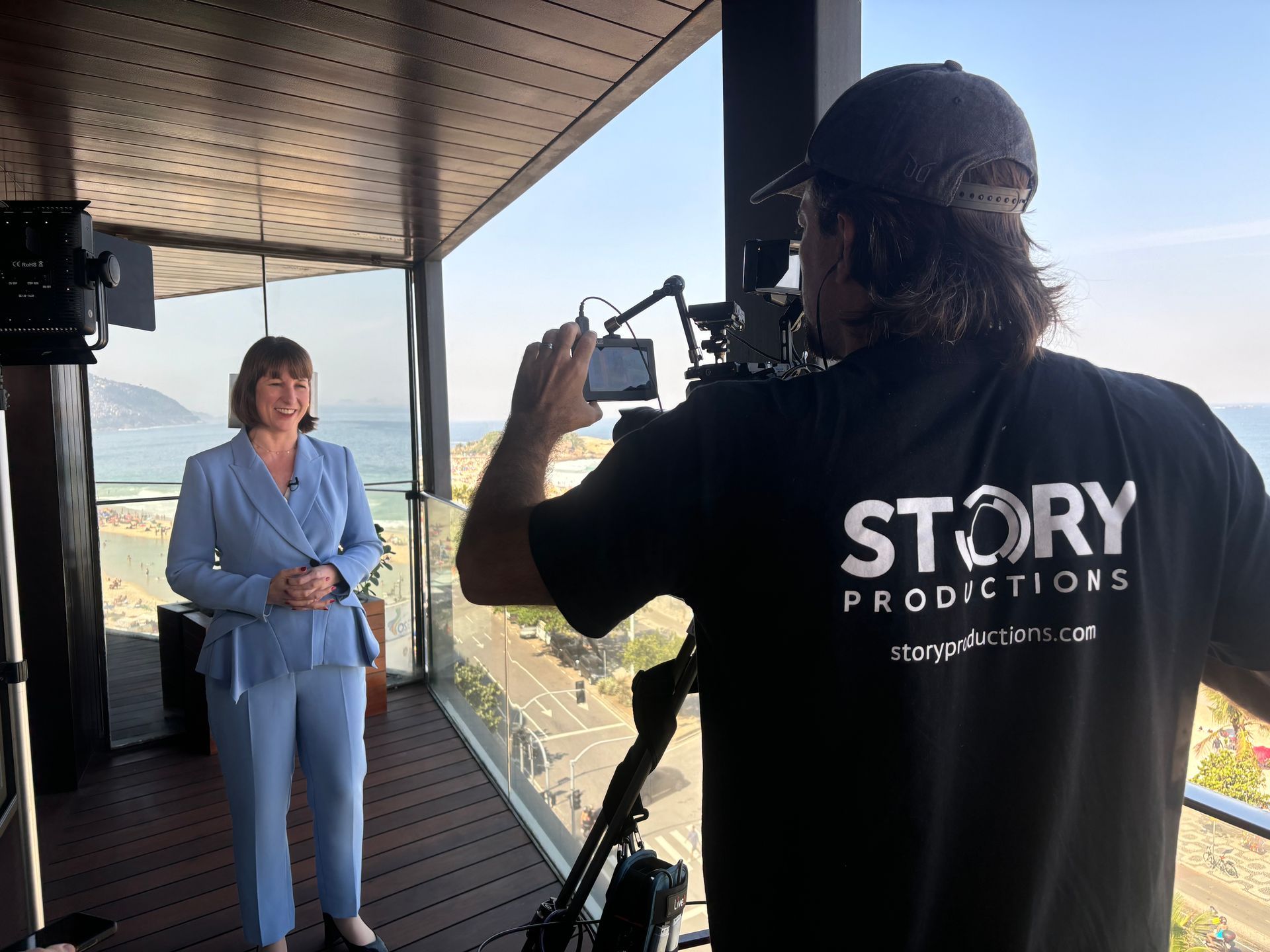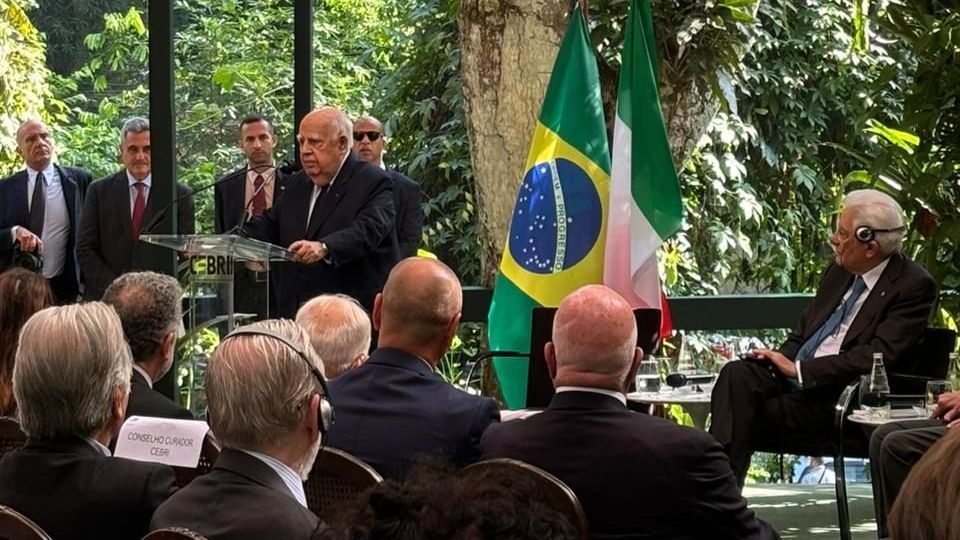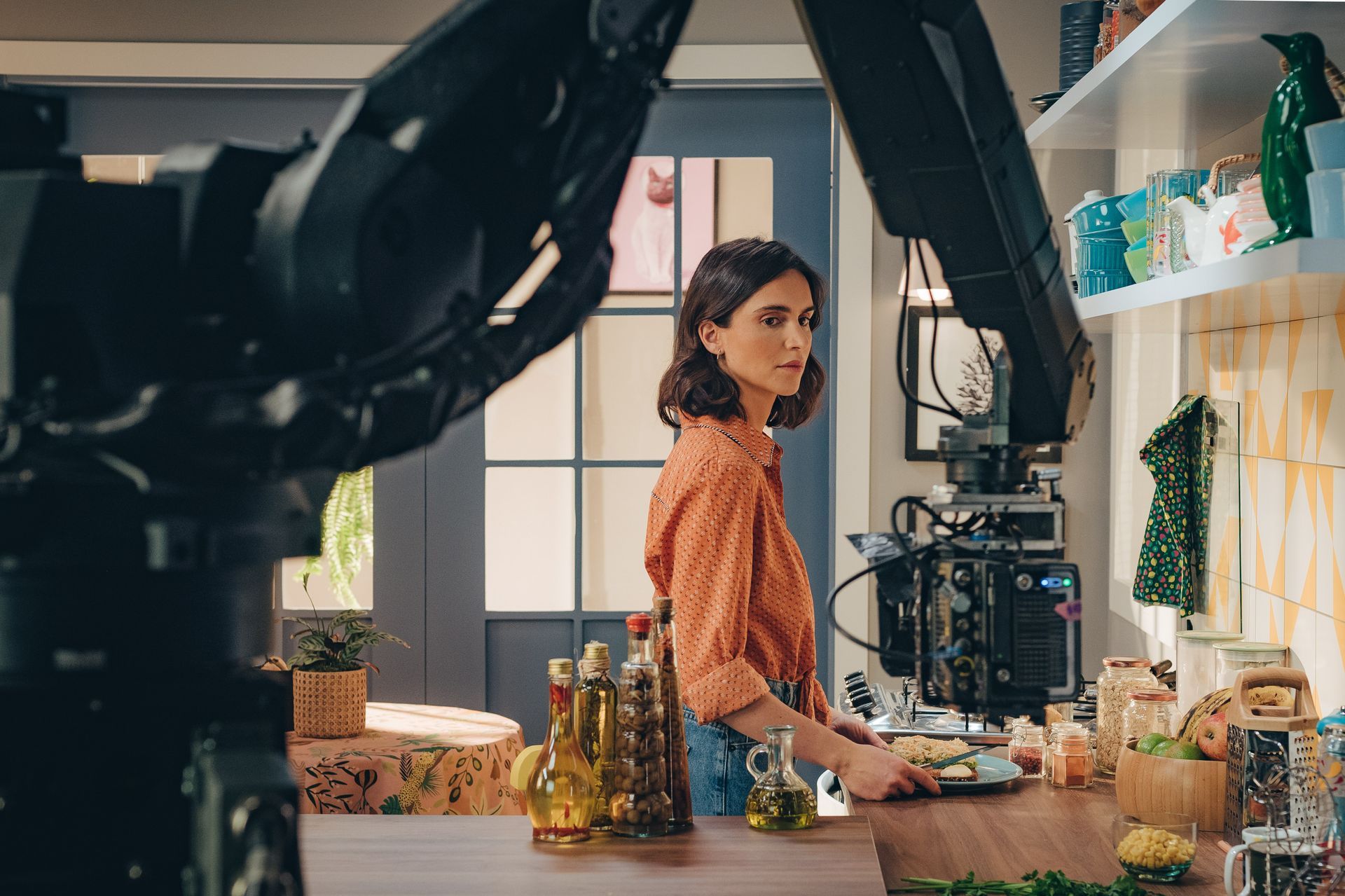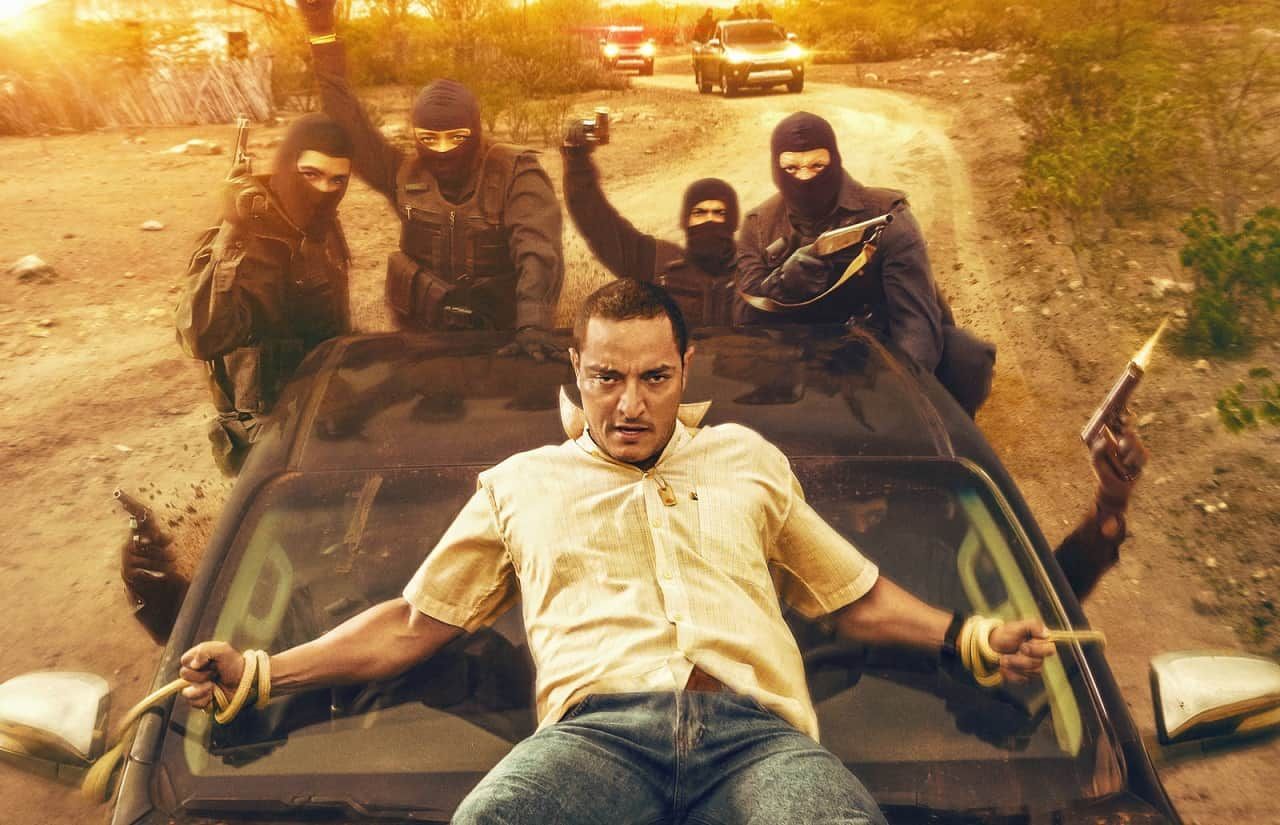Formula Dreams: how children still aspire to be the next Senna
"Esporte é Experiência" interviews Formula Dreams’ producer and showrunner, Nick Story, about the MAX documentary series.
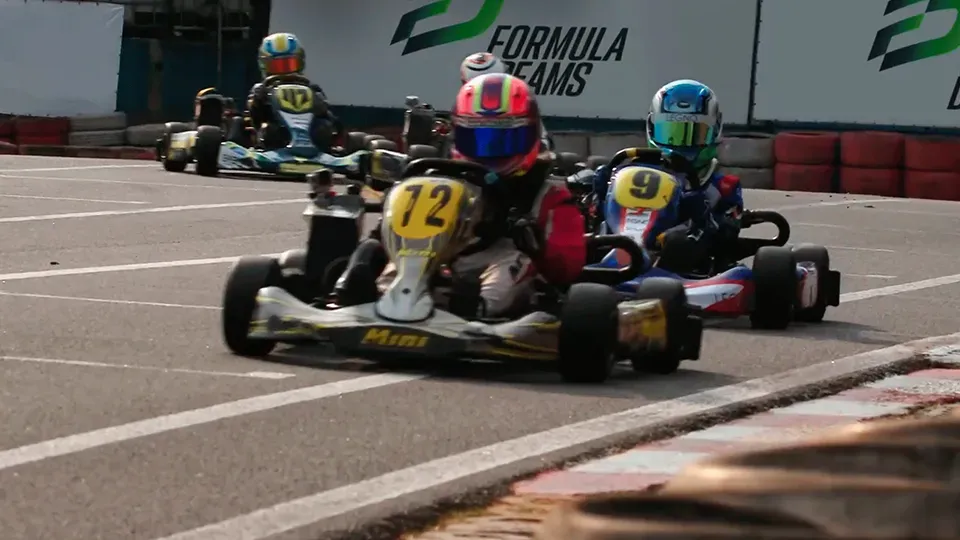
This article is a translation of an interview published by IG Esporte. Read the original portuguese version here.
I confess that I resisted considering motorsport as a sport for a long time. For me, the "athlete" was the machine, not the driver. I was never a big fan of cars; I always preferred anything involving a ball. However, my perspective changed a lot not long ago. I only understood the active involvement of the drivers when I watched documentaries and saw on TV the physical preparation and the amount of strength a race demanded from them.
Two recent cinematic works were very important. Both the movie "Grand Turismo" (it's no longer out in theaters, but you can watch it on Max or Amazon Prime) and "Ferrari" (this is still in some theaters).
My first contact with racing was watching Formula Indy, and one thing caught my attention during Téo José's broadcast on SBT. There was a driver named Gil de Ferran, and he was Brazilian. Hey, same three letters of my name, same country. It was as if it were me there. I rooted for him. Unfortunately, he passed away at the end of last year.
And what about the greatest Brazilian idol in this category of drivers? I was born in 1993 and turned one year old exactly seven days after Ayrton Senna's death. I didn't witness it, but I grew up hearing from my father and mother how many times the Brazilian driver made people happy, traditionally on Sundays, live on Globo with Galvão Bueno's narration. Today, March 21, Senna would be turning 64 years old. And one thing that intrigues me is how a man like Senna, even long after he has left us, continues to captivate fans around the world. Just as I saw myself playfully represented in the figure of Gil de Ferran, children look up to motorsport idols. As I mentioned, TV and movies were fundamental in convincing me and getting me closer to the world of engines.
And speaking of Max...
On January 5, the documentary series "Formula Dreams" premiered on Max (formerly HBO Max). The show tells the story of Antonella, Heitor, Wagner, Gabriel, and Murilo, who share the same dream: to be the next Brazilian star of Formula 1. It consists of ten episodes that tell the story of a group of children aged between 8 and 12 years old, growing up in the high-speed environment of competitive karting.
To talk about what it's like to witness children chasing this dream and the challenges of portraying it in documentary form, "Esporte É Experiência" speaks to Nick Story, executive producer of the series Formula Dreams, who has been living in Brazil for 18 years. Born to an English father and Austrian mother, the producer is of French and British nationality. He is married to a Brazilian, Isabel de Almeida Prado, and together, they produced the series. Read the interview below:
1 - I have the impression that audiovisual works about motorsport are increasingly gaining relevance. I have mentioned Grand Turismo and Ferrari, which recently premiered in theaters. However, these films do not bring their characters as close to Brazilians as Formula Dreams promises to do. And the best part is that the documentary focuses on five children who drive karts. What was the experience of filming with the children, and given that you actively participated in the entire process, what did it mean to see the dreams and desires of these young people represented through karting?
In the world of documentaries, they say that the two hardest things to film are animals and children. That's because children are very spontaneous; they go in all directions when we're filming and don't always want to be filmed. Besides that, the tracks are places with a lot of noise. There were very long days, but they were very interesting. The children weren't directed, so there were moments of calm, and suddenly a lot of things happened at the same time. It was a great adventure. It's very cool to see how with each episode the children develop and mature in an environment full of pressure. There's pressure because it's an expensive sport, many of the children travel from far away to compete. These families put everything they have, and don't have, into this dream. It's a whole ecosystem of families and mechanics living at the speed of karting.
We followed these children for a year, and throughout the season they change their performance, gain confidence, and have disagreements. It's really interesting to see the resilience of these children challenging themselves every day. They learn to win and lose.
2 - This March 21, Ayrton Senna would celebrate another birthday if he were alive. He still holds idol status, something that has not yet been achieved by another Brazilian driver. Do children still y have this perception of the idol that Senna was? Or are they more focused on the playful part of the sport?
Senna lives in the imagination of parents and children. He's not there physically, but we can feel him at the karting track; he has a presence, he's a mentor. Without a doubt, he's a character in the series. Children pray for Ayrton Senna and carry Ayrton Senna's dream of how to leave Brazil and succeed. They follow the path of excellence that Senna trod. He is an example and is a sacred figure in Brazilian mythology.
3 - Leading on from the last question, karting is a gateway to motorsport, including for adults. What was the experience of filming this sport up close and seeing how seriously the children take the sport?
What I found most incredible is that children are very lucid about everything they are experiencing. They take it very seriously, and it's a sport where accidents happen, it's something that has to be taken seriously. When children compete, you don’t just have competition, there will also be many people involved, many things happening, it's serious and playful at the same time. There is also the adrenaline rush of speed; they have fun with that. We can see the moments of tension and the more fun moments. They are competitors with each other and also friends.
4 - Just like in any sport, what you see on the field, court, pool or, in this case, on the track, is the final result of a process that probably started long before and involves more people. What were the challenges in portraying families and teams with mechanics in the documentary? What was it like to see these people working together for the children?
Getting onto the track has a cost; it's an expensive sport. There are expenses for tires, car repairs, teams, trips. It's really no joke. Nobody knew who this big team filming was, we didn't have a channel to show it, it was just my word that we were planning to film the Formula Dreams season. The challenge was how to cover this place where many things happen in the best way possible. There are many children, many families. We couldn't film all the stories, even with a large team, we had to choose which part of the story to tell. There are many people around, each with an opinion on how to do things, and the biggest challenge is to follow our intuition. Many choices were made by intuition such as deciding how to approach moments of anger or disappointment. We have to position ourselves as storytellers. They are families, children who are still growing; this respect in thinking, looking, what's the cool cut, the cut that makes it observational, journalistic, telling a story as it's happening. It's not a reality show; we don't provoke situations.
5 - As a producer, observing the audiovisual market, more and more projects are about seeing behind the scenes of sport. Football teams, racing teams, or even the organizers of the championships themselves, are concerned with providing fans with access to the before and after of the sporting event. Do you think the trend is for things to increasingly move in this direction and eventually saturate, or do you see that there is a new path to achieve this sports entertainment?
I wasn't much into watching sports; I always liked playing sports. I didn't like watching soccer; I liked playing soccer, I really liked this behind-the-scenes, this social event, making friends, being active, winning, losing, a lot happening. I think reality is much more powerful than fiction. These characters that exist, they're real people; they're much more extraordinary than any fiction. As Glauber Rocha used to say, "an idea in the head and a camera in hand." And with technology, cameras are getting smaller and smaller; the trend is to have more amazing images. I don't think this will stop; it will continue. Everyone has a story to tell; each person is worth at least one documentary. What's not infinite is time; I only have one life to tell the stories I want to tell. The image becomes easier and easier; curating the story is the big challenge, the perspective you're going to bring. Every sport has a long way to go. And also, the weight of soccer is so big in the sports world that other sports need to make a big effort to be noticed.
6 - An interesting part of the documentary is that one of the characters is a girl. Antonella. It's visibly a market dominated by male presence, but we have cases like the Brazilian Bia Figueiredo and Débora Rodrigues who drove (in different categories) and competed at a high level. Just like in the documentary, is the experience in the sport increasingly encompassing the female perspective? Or is it still too early to say?
I think this movement in the karting track is happening; there are more women, it's not the majority, but there are. Antonella is a great example, she wasn't the only girl. In karting, it doesn't matter if it's a boy or a girl. It's a sport that welcomes women; over time, there will be more and more women. Just as today, ethnic diversity is much greater. The tracks look like Brazil.
7 - Finally, what experience will those who watch have when they see the kids chasing their dreams in karting? And what's it like to portray this childhood dream of winning in sports and put all this emotion and subjectivity into a documentary?
I invite people to go back to being children. To feel that great adventure that we felt every weekend of competition. It's a documentary for children, from the children's point of view; I even see myself as a big child. With it, I wanted to go back to that moment of growth, which is the great adventure of life. It's a moment of great emotional, chemical, adrenaline load, many things happening at the same time when you're practicing sports. I invite children and parents to grab some popcorn and watch together. I hope they enjoy it.
Share this story:
Get the latest news straight into your inbox!
Contact Us
Read another story
